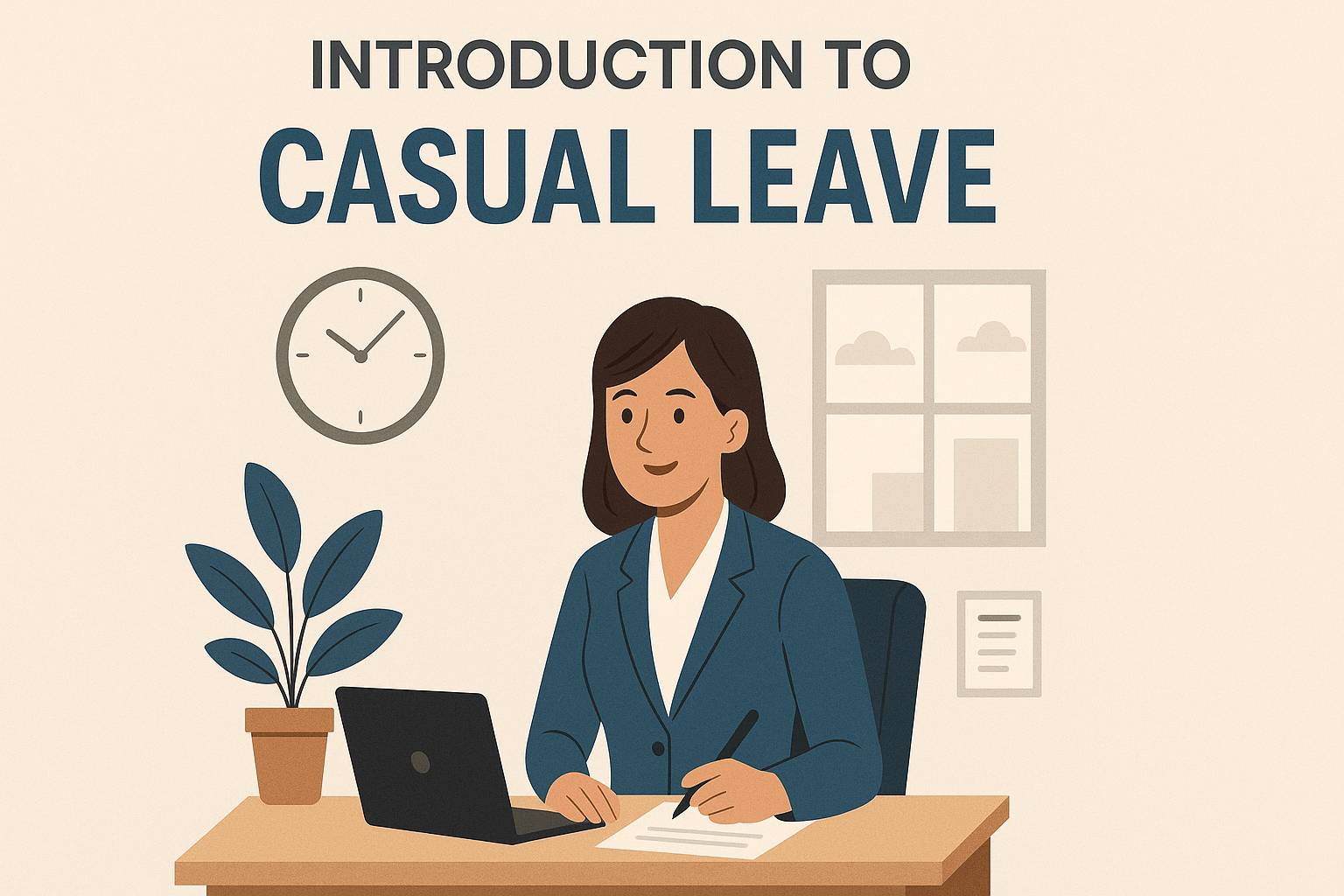Sometimes, it’s in a business’ best interest for an employee to immediately cease their work when either party has given the other notice. Understanding how much notice is required is crucial for both employers and employees when considering PILON. In such instances, the employee can be sent on gardening leave or they can be given payment in lieu of notice (PILON). Employers must provide employees with the notice period they are entitled to under their employment contract when terminating employment, which may include a longer contractual notice period. It is essential to review the employee’s contract to understand the specific terms and conditions related to PILON.
In this post, we’ll take a look at what PILON is and what you need to know about it.
What is PILON?
PILON is where an employee isn’t required to work their notice at a company and is fully paid their entire salary for the period, upon resigning or being let go. PILON payments are subject to income tax and National Insurance contributions as they are considered ordinary earnings.
Two of the most common reasons for giving an employee PILON are:
-
When you don’t want them to have continued access to sensitive and/or valuable company information
-
When they display disruptive or unproductive behaviour that makes them a liability to keep around.
However, in relation to the second reason, if you terminate an employee’s work contract for gross misconduct, you can dismiss them immediately and not pay them PILON. If an employee is terminated for gross misconduct, it is unlikely that they will receive a payment in lieu of notice.
It’s prudent to have PILON provisions clearly written into your employment contracts. If you don’t have an official policy and subsequently offer an employee PILON, your company could be found guilty of breach of contract – if said employee seeks legal advice. Now, there’s every chance that the departing employee will be pleased at not having to work their notice and it won’t be an issue – but an official PILON policy will protect your company in all instances. Employees cannot refuse PILON if the employer has a contractual right to enact it, although mutual agreement is preferred.
What’s the difference between PILON and gardening leave?
When an employee is on gardening leave, they’re still under the contract to your company. This means that they can’t start a new job until their gardening leave is over. With PILON, on the other hand, their contract is terminated immediately and they’re free to start another job elsewhere right away.
How does PILON affect annual leave and other employee benefits?
As well as PILON, you’ll have to consider all the other benefits the employee receives from your company and how they’ll be compensated for them when they leave. PILON does not have to include benefits that would have accrued during the notice period unless specified in the employment contract.
First and foremost, there’s the issue of their outstanding annual leave allowance. Now, under normal circumstances, an employee could use up their remaining holiday allowance during their notice period. With PILON, however, any remaining days will have to be compensated in their final salary payment.
Calculating this will be straightforward if you have system for accurately tracking and updating your staff’s remaining annual leave allowance, like a centralised absence management software. However, for businesses that struggle to track their employees’ leave, this will prove trickier.
Other benefits may be harder to quantify than remaining holiday dates, such as a company car and medical insurance. You must determine if employees will have access to these benefits during PILON and if not, how they’ll be compensated. Medical coverage, in particular, can prove difficult to work if the employee is undergoing treatment at the time of their departure.
A primary reason for an employee seeking legal counsel when they’re given PILON is them feeling they didn’t receive the compensation they were due upon their departure. This is all the more reason to ensure you have a policy, including details of compensation for company benefits, in employee contracts. This will save you having to decide what to do when such a situation arises and protects the company in the event of a dispute. Employees may be entitled to redundancy pay in addition to the PILON if redundancy is the reason for termination.
Introduction
Payment in Lieu of Notice (PILON) is a common practice used by employers to terminate an employee’s contract with immediate effect. Instead of requiring the employee to work through their notice period, the employer makes a lump sum notice payment to cover the notice period. This approach can be beneficial for both parties, but it also comes with its complexities. It is crucial to review the employment contract to understand the employee’s notice period and how it affects final pay calculations and benefits retention. Employers need to be aware of the potential pitfalls and ensure they follow the correct procedures to avoid legal issues. In this guide, we will explore the concept of PILON, its types, and the rules surrounding it, providing you with a comprehensive understanding of how to handle payment in lieu of notice effectively.
What is Payment in Lieu of Notice (PILON)?
PILON, or Payment in Lieu of Notice, is a payment made by an employer to an employee instead of requiring them to work their notice period. The term “in lieu” means “in place of” or “instead of,” indicating that the employee receives notice pay instead of working during the notice period. This payment is often included in settlement agreements, particularly in cases of dispute or redundancy, to facilitate a smoother transition for both the employer and the employee. By opting for PILON, employers can ensure that the employee leaves immediately, which can be crucial in situations where continued presence might be detrimental to the company. The contractual notice period plays a significant role in determining the amount of PILON, as it affects the calculations for the employee’s entitlements.
Types of PILON
There are two main types of PILON: contractual PILON and statutory PILON. Understanding the differences between these types is essential for employers to ensure compliance and proper compensation.
The amount of contractual PILON is typically calculated based on the employee’s basic pay and any other contractual benefits they would have received during the notice period. This may include pension contributions, depending on the specifics outlined in their contracts and the nature of the pension scheme.
Contractual Notice Period
Contractual PILON is a payment made in accordance with the terms specified in the employee’s contract. This type is a taxable benefit and is subject to the same deductions as a standard paycheck, including tax and National Insurance Contributions (NICs). The amount of contractual PILON is typically calculated based on the employee’s basic pay and any other contractual benefits they would have received during the notice period. Having a clear notice clause in the employee’s contract that outlines the terms of PILON can help prevent disputes and ensure that both parties understand their rights and obligations.
Statutory
Statutory PILON, on the other hand, is a payment made in accordance with the statutory notice period. This is the minimum payment that an employer must make to an employee who has been terminated without notice. The amount of statutory PILON is usually calculated based on the employee’s basic pay and the statutory notice period, ensuring that the employee receives at least the statutory minimum compensation. Employers must be careful to comply with statutory requirements to avoid legal repercussions and ensure fair treatment of employees. Additionally, statutory redundancy pay must be considered, as it is a legal entitlement for employees terminated due to redundancy, and it is separate from any payment in lieu of notice.
By understanding and correctly implementing both types, employers can manage terminations more effectively and maintain compliance with legal standards.
Notice Period and PILON
The notice period is a critical aspect of employment law, and it plays a significant role in determining the payment in lieu of notice. The notice period is the amount of time an employee is required to work before leaving their job, and it can vary depending on the employee’s contract, the type of employment, and the reason for termination.
In the UK, the statutory minimum notice period is one week for employees with less than two years of service, two weeks for employees with two to 12 years of service, and 12 weeks for employees with 12 years or more of service. However, the notice period can be longer if specified in the employee’s contract.
PILON is a payment made by an employer to an employee in lieu of the employee working their notice period. The payment is usually calculated based on the employee’s basic pay and is subject to income tax and national insurance contributions.
When an employer decides to terminate an employee’s contract, they must consider the notice period and PILON. If the employer chooses to pay PILON, they must ensure that the payment is calculated correctly and that the employee is aware of their rights and obligations.
Tax Implications
The tax implications of PILON are an essential consideration for employers and employees. PILON is subject to income tax and national insurance contributions, and employers must deduct these taxes from the PILON payment.
When an employer makes a PILON payment, it is treated as normal pay for tax purposes. This means that the payment is subject to the same tax and national insurance deductions as the employee’s regular salary. Employers must ensure that these deductions are made correctly to avoid any potential issues with HMRC.
For employees, it’s important to understand that receiving a PILON payment will affect their tax liability for the year. The payment will be added to their total income for the tax year, which could potentially push them into a higher tax bracket. Therefore, both employers and employees should be aware of the tax implications to ensure that all necessary deductions are made and that there are no surprises when it comes to tax time.




